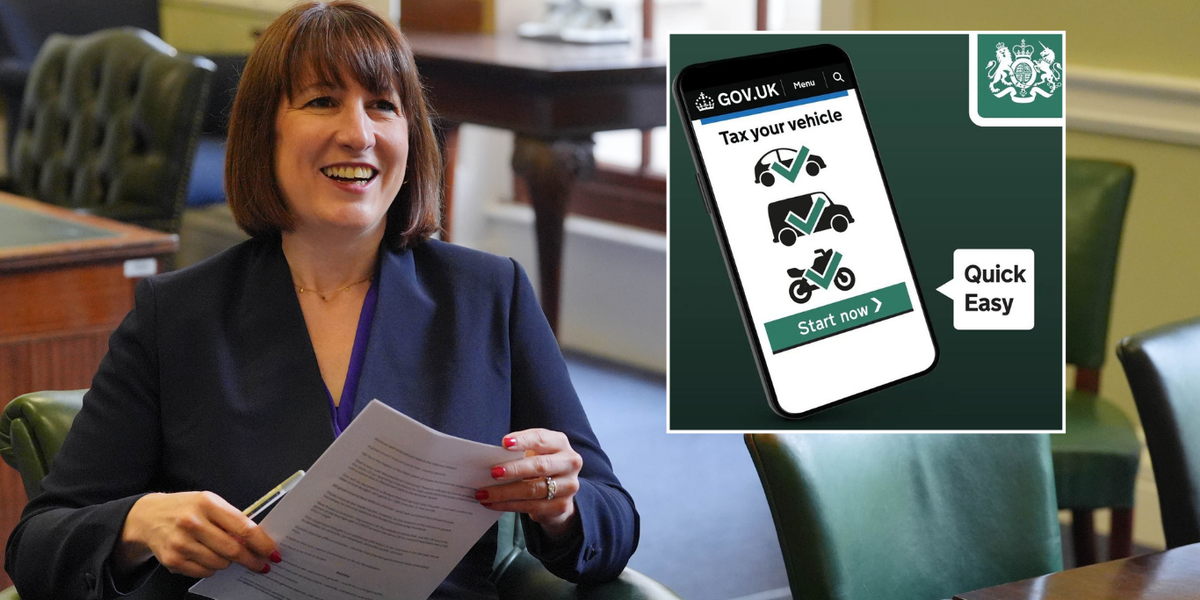Drivers have been warned they have just weeks to prepare for significant changes to motoring laws, with electric vehicle owners set to face the biggest impact from April.
The warning comes as a series of new regulations and tax changes will come into force impacting millions of drivers across the UK.
One of the biggest changes involves EVs losing their Vehicle Excise Duty exemption, while also facing the end of London Congestion Charge benefits later in the year. The changes mark a substantial shift in how vehicle ownership is regulated and taxed in the UK under a Labour Government.
Petrol and diesel drivers will also be affected by various updates, including changes to fuel pricing transparency and new safety requirements.
Do you have a story you’d like to share? Get in touch by emailing[email protected]
Under the rules announced by Chancellor Rachel Reeves in the Budget last year, from April 1, electric vehicle owners will be required to pay Vehicle Excise Duty for the first time, marking the end of their tax-free status. Newly registered EVs will face a £10 charge in their first year of registration.
This will increase significantly to £195 annually from the second year onwards. For luxury electric vehicles priced over £40,000, owners will face an additional expensive car supplement of £410 per year, payable for five years.
The changes are part of the Government’s standard uprating of Vehicle Excise Duty rates, which aims to maintain tax receipts in real terms.
London’s electric vehicle drivers will face another significant change later in the year as their Congestion Charge exemption comes to an end on December 25.
From this date, all vehicles including electric and hydrogen-powered models will need to pay the full £15 daily charge when driving through central London.
This replaces the current system introduced by Mayor Sadiq Khan where EV owners can pay £10 for an exemption from the Congestion Charge.
However, due to the seasonal closure of the charging zone, the new rules will effectively begin from January 2, 2026, as there is no Congestion Charge between December 25 and January 1.
Meanwhile company car drivers will see Benefit-in-Kind tax rates increase by one per cent from April with electric vehicle rates rising from two per cent to three per cent.
But petrol and diesel vehicles will face even steeper increases in their company car tax rates. New regulations for EV charging providers will require them to meet strict Government standards for reliability and accessibility.
Providers who fail to comply with these standards could face fines of up to £10,000 per charger. The measures aim to enhance the charging experience for EV drivers while ensuring consistent access to reliable infrastructure across the UK.
John Wilmot, CEO of LeaseLoco.com, said: “These upcoming changes show a significant shift in how vehicle ownership is incentivised and regulated in the UK particularly for electric vehicles.
“The removal of key EV financial perks, such as the VED exemption and Congestion Charge discounts, will undoubtedly impact the cost effectiveness of owning or leasing an EV.”
LATEST DEVELOPMENTS:
He added: “For many drivers, these incentives were a major factor in the decision to transition to electric. So its possible that these changes could actually slow the momentum of EV adoption, particularly among drivers who were on the fence about making the switch.”
Additional changes coming in 2025 include the nationwide Fuel Finder scheme, requiring all petrol stations to share real-time fuel prices.
HGV operators in Greater London will need safety permits from May 4 under the Direct Vision Standard, assessing driver visibility of vulnerable road users. Elsewhere, Scotland is set to implement a nationwide 20mph speed limit in urban and residential areas during 2025.

